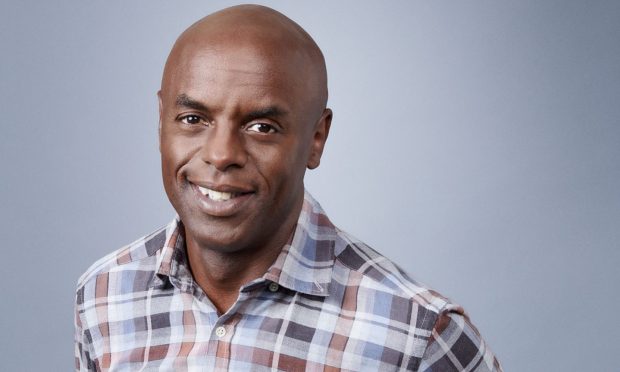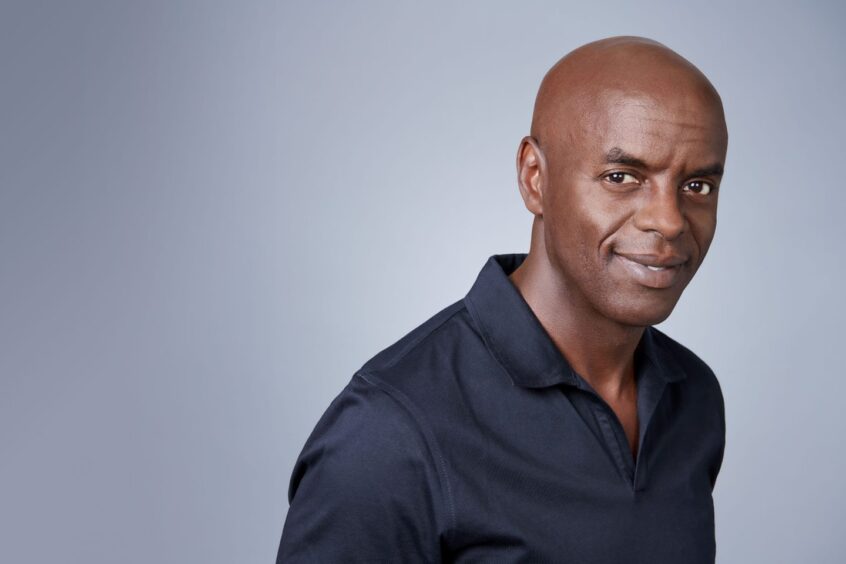
As he takes the reins of the afternoon show on BBC Radio 2, we caught up with Trevor Nelson about his new timeslot, music memories, and saying goodbye to The Rhythm Nation.
How much are you looking forward to the new afternoon show?
It’s something I didn’t plan, that’s for sure, but I’m incredibly excited. For the first time in my career I’ve had a four week break from radio. I’m re-acclimatising into daytime living.
Going into the BBC building was like a culture shock to me because it was buzzing with people! It’s the one thing I haven’t really done, so I’m really looking forward to it. I feel like there’s such a lot of goodwill for me. I’m going to enjoy it.
How proud are you to land a coveted afternoon slot, once held by the likes of Steve Wright?
I don’t look at things like that, funnily enough. I remember standing in for Ken Bruce a few years ago and everyone was making more of a fuss of it than me! I didn’t really understand how big a show it was. Sometimes you can get caught up with legacy of shows.
Steve Wright was a real closet soul boy! He said the nicest thing to my old boss when he took over, asking him to give me more time on the radio. [At that point] I’d only met Steve once or twice briefly.
When I did see Steve and talked to him about it he shrugged it off, no biggie. It was the radio geek and radio fan he was – if he thought you were doing something good, he’d probably just point it out. It’s not going to be like the big show. It’s going to be my show. And I think the time is now.
You bid an emotional farewell to your Rhythm Nation show. How proud are you of it?
I don’t think people knew the challenge I had with that show and what I meant. The clip has gone a bit viral. I’ve been hiding away from the public because of that one!
Radio 2 has never quite had a show like that before. My thing was to create a show that had musical integrity, was really easy to listen to, was a little bit of fun and listener-driven. That’s quite hard to do, especially in the evening when everyone’s just winding down. They don’t want to be texting the radio station, ‘you do the work mate!’
We built a community. It’s my proudest show in my whole career, that’s why it was quite hard to say goodbye.
You’re not dying. You’re not leaving the station. Why are you getting emotional? I was slapping myself in my head, but it was because I’ve been doing radio so long, I know when something’s special.
DJ Spoony takes over your old slot – you’re from the same area?
I’ve only just realised he grew up streets away from me. He’s a little younger so I didn’t know him when we were young. He was best mates with one of my best mates’ younger brother. He comes from the same lineage as me, musically, in terms of growing up in East London in Hackney and it’s a very music-driven area to grow up in.
It’s quite ironic that we are both on Radio 2 now, it’s just a million miles away from anything we would have ever envisaged when we were kids. It was never on our radar to be on a national radio station far less Radio 2. It’s quite nice that he takes over my slot.
He loves the music, it’ll be slightly different. He’ll do it his own way. There’s a slot there now that Radio 2 have got that is soulful, it’s perfect for the evenings and long may it last. That sort of music is really important to bring in different people to the station. Radio 2 is at that point where it couldn’t get any better in terms of numbers, but there are still ways we can improve it and make it a little bit more diverse and eclectic. I think that’s what The Rhythm Nation did.
How has radio kept people tuning in in the age of streaming?
If anyone’s of a certain age and ever bought an album, or CD, they like the artwork and the credits, taking a little bit more interest in it than just what you hear. That’s what a lot of people who listen to Radio 2 are like. They need to touch something to feel it, to connect to something, and that’s what our job is.
I had a lot of younger listeners as well say they had a playlist sort of curated by me. If you get that in broadcasting that is the best feeling.
On the Radio 2 playlist, you’re playing new music, the old favourites and then bringing new life to forgotten classics?
Yeah, exactly. You nailed it. That’s what it’s about. That’s what daytime’s going to be. Still playing the Radio 2 sound, the new music. The Rhythm Nation was soulful, but it was still quite eclectic. It’s not like I’m a soul DJ going to daytime and I won’t be able to hack it!
I’m going to enjoy just adding a sprinkle of something that they probably don’t have on daytime. I started my legal radio career doing daytime. This is the one I think I’m most equipped for. Because I’ve been at Radio 2 longer than people think, I really understand the listeners and the station.
You’ve got a special series on Bob Marley coming up too?
It’s called Bob Marley Eras, a four-part podcast series. When you think there’s nothing else to say about Bob Marley, there’s always something you don’t know because he was such an incredible artist. This is a different take on him; friends, fans and people who actually knew him and archive interview clips from the man himself.
It’s such an encapsulating listen, you’re not distracted by scenes of Jamaica and concerts and him performing. It really is a different way of taking in the Bob Marley story.
Do you have a favourite big name you’ve spoken to over the years?
I interviewed most of them that I’ve ever wanted to and had good moments with all of them. I’m a fan of the music. I wasn’t tabloid and I was never trying to get anything going viral. I think my favourite interviews were probably with Mary J Blige over the years because she’s had so many ups and downs in her career and she’s brutally honest.
The first time I met her, I didn’t like her. I’ve talked about it to her. And she said, ‘well I didn’t like myself’. That’s what I love about someone like her. You can say that to her. ‘I didn’t like you when I met you, loved your music though!’
We always have honest interviews. I did a documentary on her where I spent a few days with her in Oakland and on tour in America. She’s just a different sort of human being. One of the modern greats, for me, Mary J. There are lots of others, but she was always a joy, a challenge, everything all rolled into one.
Just before you interview someone, there is a sort of nervousness, even if you know them, because you don’t know what they’re going to give you. I sounded really confident maybe, but there was also nervousness because it’s not 100% in your hands.
What do you do in your spare time?
I get away from music. I’m not what I was all those years ago. I was so 100% all over the music. Now I do everything but listen to radio. I play a lot golf if I can, keep fit, love my sport, my football. I go nearly every week and I won’t miss games now that I’ve changed my slot.
I just live life and I’m going to try to travel a bit more, get out of the bubble I’ve been in and that’s what the release of daytime is going to do for me. I’m going to be more connected to friends at work now, do other stuff.
I don’t think I’ll be doing panto… You never know though! I don’t think I’ve got the demeanour for panto, unless there’s some cool, laid-back character that doesn’t say anything.
Trevor Nelson, Mon-Fri, 2-4pm on BBC Radio 2 and BBC Sounds. Eras: Bob Marley is available now on BBC Sounds.

Enjoy the convenience of having The Sunday Post delivered as a digital ePaper straight to your smartphone, tablet or computer.
Subscribe for only £5.49 a month and enjoy all the benefits of the printed paper as a digital replica.
Subscribe © BBC/Ray Burmiston
© BBC/Ray Burmiston